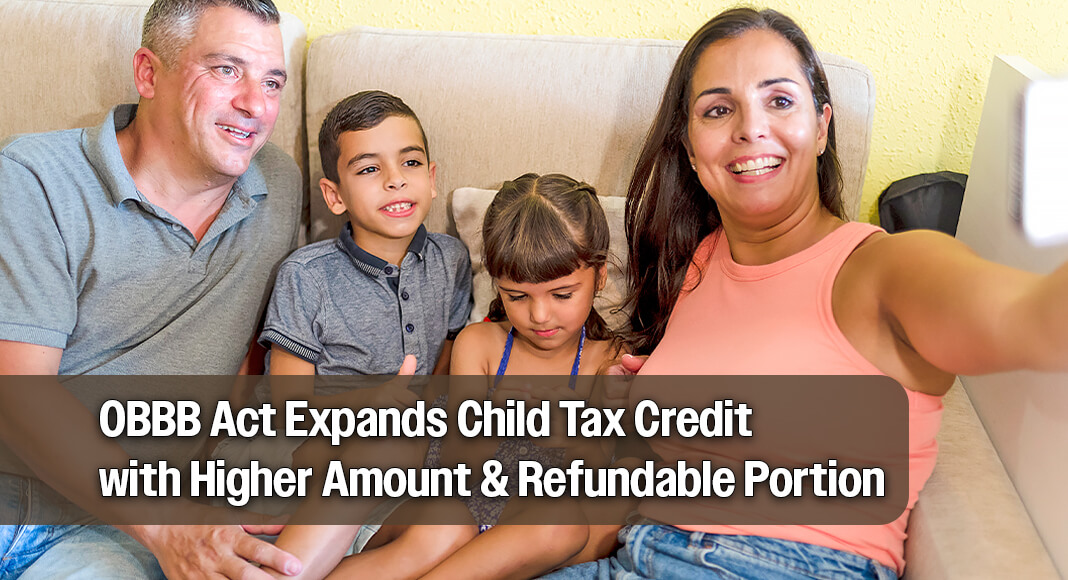
Mega Doctor News
Texas Border Business / Mega Doctor News
The “One, Big, Beautiful Bill Act” (OBBB), signed into law on July 4, 2025, includes an expansion of the Child Tax Credit, a provision that helps families offset the costs of raising children. According to the legislation, “for years 2025 through 2028, the child tax credit is increased from $2,000 to $2,200.”
The Child Tax Credit is a federal benefit that allows parents and guardians to reduce their tax liability for each qualifying dependent child under age 17. It is designed to provide direct financial relief to families. Before the passage of the OBBB Act, the maximum credit was $2,000 per child, an amount established in the 2017 Tax Cuts and Jobs Act. The new law raises that amount to $2,200 per child, beginning with the 2025 tax year.
The legislation also confirms that part of the credit remains refundable. As the statute explains, “for 2025 the refundable portion is $1,400 indexed for inflation (capped at $1,700).” A refundable credit means that if the credit exceeds the amount of taxes owed, families may receive part of the difference as a tax refund. For example, suppose a family qualifies for $4,400 in credits for two children but owes only $3,000 in taxes. In that case, they may still receive a refund for the additional eligible amount, subject to the refund cap.
The increase to $2,200 may seem modest, but for families with multiple children, it adds up. A household with three qualifying children could claim $6,600 under the new rules, compared to $6,000 previously. For lower- and middle-income families, the partial refundability of the credit ensures that they can benefit even if their income tax bill is relatively small.
This change is temporary. The law specifies that the expanded credit applies “for years 2025 through 2028.” Beginning in 2029, unless Congress acts again, the credit amount will return to its previous level of $2,000 per child.
Supporters of the adjustment argue that increasing the credit helps families meet rising living costs. Food, housing, and childcare have all become more expensive in recent years, and the additional $200 per child provides extra relief during those years. Critics, however, point out that the increase is relatively small and limited in duration. Some advocates had called for a larger expansion or a fully refundable credit, which would have provided more direct support to low-income families.
The Child Tax Credit remains one of the most significant family-focused provisions in the tax code. In 2021, a temporary expansion under pandemic relief legislation raised the credit to $3,000 or $3,600 per child and made it fully refundable, but those provisions expired. The OBBB Act does not return to those higher levels, but it does create a more modest, multi-year boost.
As the new law clearly states, “for years 2025 through 2028, the child tax credit is increased from $2,000 to $2,200.” For families across the country, that means a slightly higher tax benefit and continued access to a partially refundable credit, offering some additional financial support in the years ahead.
See related stories:










